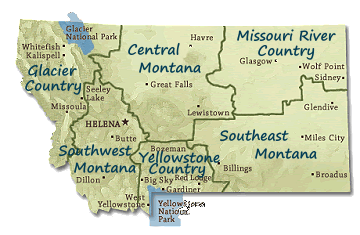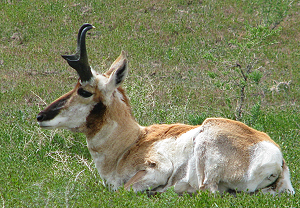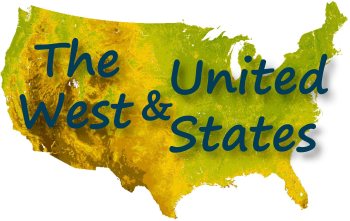Putting the "Public" Back in "Public Trust"
"Cease being intimidated by the argument that a right action
is impossible because it does not yield maximum profits,
or that a wrong action is to be accepted because it pays." ~ Aldo Leopold
Aldo Leopold wrote, The Ecological Conscience, "I have no illusions
about the speed or accuracy with which an ecological conscience can
become functional. It has required 19 centuries to define decent
man-to-man conduct and the process is only half done; it may take as
long to evolve a code of decency for man-to-land conduct. In such
matters we should not worry too much about anything except the
direction in which we travel. The direction is clear, and the first
step is to throw your weight around on matters of right and wrong in
land-use. Cease being intimidated by the argument that a right action
is impossible because it does not yield maximum profits, or that a
wrong action is to be accepted because it pays. That philosophy is dead
in human relations, and its funeral in land-relations is overdue."
The Ranching of Wildlife
The
other morning a conservation hunter friend, Rod Bullis, called and said
that I needed to turn on Northern Ag Network's Voices of Montana - they
were discussing elk shoulder seasons. I dont own a radio, but I found
it online quickly and caught the second half. Pissed off, I found the
audio links and listened to the first half. Segment 1Segment 2The
guest was Terry Anderson, from PERC. He said the best habitat are the
larger private parcels like Turner and the Wilks places, said the public
hunters are slaughtering the wildlife, the tragedy of the commons,
that we need restricted access to protect wildlife. He also said the
average hunter needs to pay for hunting access, talked about $1000,
said the hunters were driving around in $30,000 pickups with expensive
rifles and such and can afford to pay landowners for the right to hunt.
Terry said our licenses need to go up, but the increase should be
dedicated to landowners, then spoke about going back to late season
hunts to drop elk numbers down like before. The listeners where then
referred to PERC's website for more information. PERC is a Bozeman
based organization that I knew advocated for federal public lands being
turned over to the state. I went to PERC's site, typed in elk
hunting in the search bar to find they advocate ranching for wildlife,
specifically talking about the Texas Model: "Texas has the
flexibility and incentives for which ranching for wildlife strives. It
is by far the leader in terms of the number of landowners who have
instituted fee hunting. A study by Butler and Workman (1993) found that
52 percent of the Texas ranches surveyed offered fee hunting. The
result is a wide array of hunting opportunities and price ranges in
Texas (see Figure 1)..." "With the decline of quality hunting
opportunities on public lands, however, more hunters are willing to pay
for better hunting, and landowners are responding to this demand by
offering hunting access for a fee. Through ranching for wildlife, state
wildlife agencies can build on this foundation..." "In other
western states, ranching for wildlife provides many of the benefits
found in Texas. In these states, much of the land is public and access
has been traditionally free. Until recently, this free access
discouraged private landowners from even maintaining habitat, let alone
planting forage or building ponds to attract game animals. Landowners
could not earn enough from fee hunting to justify the expense. With the
decline of quality hunting opportunities on public lands, however, more
hunters are willing to pay for better hunting, and landowners are
responding to this demand by offering hunting access for a fee. Through
ranching for wildlife, state wildlife agencies can build on this
foundation." PERC advocated longer seasons, "Because a longer
season offers a better chance of harvesting trophy animals, more
hunters are willing to pay landowners a premium for these hunts." There
were numerous papers there like Turning Wildlife Into An Asset,
Wildlife in the Marketplace, etc. This Sept., after the Skyline Sportsmen wrote an oped against elk shoulder seasons, PERC's Terry Anderson wrote a reply,
in which he stated, "Colorado's 'ranching for wildlife' program takes
an even bigger step. It gives landowners more say in who can hunt and
gives them some permits which they can sell at whatever price the market
will bear in return for cooperating with the state's wildlife agency
on habitat management plans. Put bluntly, opposition to
shoulder seasons is driven by short-sighted self-interest. It is short
sighted because it fails to recognize landowners, who control the best
habitat in the state, as allies of hunters. It is self-interested
because it fails to recognize that landowners bear the cost of
providing habitat and asks them to provide a free-access lunch for
hunters. To be sure, elk are public wildlife, but as Chuck Denowh,
policy director for United Property Owners of Montana, put it, 'it's
time for the public to pay. The shoulder seasons are a very tiny step in
the right direction.' " So I got the partially worked Satirical
Magpie editorial cartoon that I had begun working on in June, when the
elk shoulder season first came up before the FWP Commission, and
finished it - adding PERC to the Robber Barons. One
of my favorite quotes is from Marshall Sahlins, an anthropologist, who
wrote, among many other things, The Original Affluent Society, first
presented at a symposium on "Man the hunter," in 1972, about
hunter-gatherer cultures. Towards the end he states, "The world's most
primitive people have few possessions. but they are not poor. Poverty is
not a certain small amount of goods, nor is it just a relation between
means and ends; above all it is a relation between people. Poverty is a
social status. As such it is the invention of civilization."
My previous decades of research, prior to Montana conservation, is in
ancient archaeology, anthropology, comparative religious systems and
linguistics - mostly of hunter-gatherer cultures and the following
Indo-European caste/class system cultures that are very market, resource
control driven. So this subject is not unfamiliar to me. In fact, it
was part of what drove me to all that research, because hunter-gatherer
mentalities are typically community oriented, sharing what they have,
which I have participated in and have been a recipient of, especially
when I have been injured and couldnt hunt. John Gowdy wrote
in, Hunter-gatherers and the mythology of the market, "Assumptions
about human behavior that members of market societies believe to be
universal, that humans are naturally competitive and acquisitive, and
that social stratification is natural, do not apply to many
hunter-gatherer peoples. The dominant school of economic theory in the
industrialized world, neoclassical economics, holds these attributes to
be essential for economic advancement and affluence... Neoclassical
economic theory contains more than a set of beliefs about human nature.
It is also an ideology justifying the existing economic organization,
resource use, and distribution of wealth. This belief system sees class
divisions as inevitable and sees nature as a collection of 'natural
resources' to be used to fuel the engine of economic growth and
technological progress. The inequality of the distribution of goods
among individuals in a capitalist economy is justified according to the
'marginal productivity theory of distribution.' " Gowdy
further writes concerning the environment of hunter-gatherers, "Because
immediate-return hunter-gatherers lived, for the most part, off the
direct flows from nature, it was immediately apparent when the flow of
nature's services was disturbed, sustainability meant sustaining the
ability of nature to provide the necessities of life. Hunter-gatherers
have displayed the ability to substitute certain natural resources for
many others, but care was taken to maintain the flow of nature's bounty.
Substitution is also one of the basic driving forces behind market
economies, but it takes a much different, and virulent, form. In
economic markets, no matter what the resource, a substitute for it will
always appear if the price is right. However, since the ultimate
measure of market value is monetary, all things are reduced to a single
common denominator, money. Substitution is based on monetary values
which may ignore essential characteristics not related to immediate
market functions. According to economic criteria, an economy is
sustainable, then, if its ability to generate income is maintained,
that is, if the monetary value of its means of production is
non-decreasing (Pearce and Atkinson 1993)... This way of
looking at the world masks the fact that we are sacrificing for
ephemeral economic gains the viability of resources upon which our
ultimate existence as a species depends... Market
decisions reflect the interests of individual humans, not necessarily
the community, and certainly not the well-being of the rest of the
natural world. We make very different choices as individuals than we do
as members of families, communities, or nations, or even as world
citizens." This is
why public lands and wildlife are so important to us, versus those
that advocate for turning these resources over to be privatized - we
view the "community", whether it is the community of conservation
hunter/anglers or the whole biotic community of natural resources, as
the priority, for the greater good, rather than the shortsighted wealth
of privatization they want to impose.
"I n
1887, a New Yorker-turned-cowboy rode his horse through North Dakota's
Badlands on an autumn hunting trip. Instead of the vast herds of
antelope, deer and elk he had encountered on previous journeys,
29-year-old Theodore Roosevelt this time confronted a landscape nearly
devoid of wildlife and devastated by overuse. 'What had been a teeming
paradise, loud with snorts and splashing and drumming hooves, was now a
waste of naked hills and silent ravines,' Edmund Morris wrote in his
Pulitzer Prize-winning biography 'The Rise of Theodore Roosevelt.' " |

| | Hunt Right - Ethical Hunting |
"Of
course it's a lot tougher hunting elk on foot than driving around
road-hunting. And if you're lucky and skillful enough to take one, it
requires carrying it back a mile or more to camp on your back, one
quarter at a time. But as those who've spent their time chasing elk
know, there's not much about it that's easy. You 'earn your elk' through
hard work, good preparation and attention to treating any animal you
may take with the respect it deserves." |
"
'We must resist the fuzzy, fuzzy Neverland of collaboration,'
Brandborg said. 'We may invite people to deliberate with us, but we must
recognize the primary value is the wildness of this land and the
preservation of it.'
Brandborg said too many
conservation groups were 'infiltrated' by corporate business interests
that used financial contributions to weaken support for the Wilderness
Act's principles." |
"In
a recorded interview in February with David Farmer, a deputy refuge
manager and federal wildlife officer, Young said his sawmill was
located on private property near the tractor along the access path and
admitted he had cut timber in the area around the refuge for years.
Most of the lumber, he said, was for ranchers, documents state.
Farmer
stated he had observed Young transporting freshly cut Douglas fir
trees in early 2014. Young had permits to cut timber in 2007 and 2010
on neighboring private land and may also have had one in 2014. Court
documents state that even if Young had permission to be on the private
land, permission to cut trees on the refuge land was never granted." |
| | Yellowstone Grizzly by Mark Albrecht |
"The
study, published in Molecular Ecology, looked at 729 bears and found
that the effective population - the number of bears passing genes to
the next generation - in Yellowstone has quadrupled since the 1980s,
growing from 100 to about 450. Researchers also found that genetic
diversity in the population was stable.
That
means gene variations that can help grizzlies evolve and adapt have a
better chance of being passed on to new generations of Yellowstone
bears. That's important for their continued survival, especially in the
age of climate change." |

"Montanans
who hunt the Missouri Breaks north of the river, including Hunting
District 410, should understand one very important fact: For more than a
year now, the Bureau of Land Management has been writing a Resource
Management Plan that will outline what happens on these lands for the
next 20 years... So far, most Montana elk and mule deer hunters
have chosen not to inform the BLM of their concerns, or to participate
in the process, in any way. Those who don't participate don't get what
they want, and they tend to lose what they have. In the
current draft of the Resource Management Plan written by the Lewistown
Field Office of the BLM, there are no new plans or new mandates for
conservation of these hunting lands. No concrete plans to retain the
backcountry nature of even the most isolated and intact landscapes. No
recognition of the fact that this is some of the world's best publicly
accessible elk hunting. In fact, in this RMP, hunting and other
backcountry recreation has no recognition at all... If you
believe that the backcountry big game hunting in the Missouri Breaks is
important enough to hold onto, now is the time to tell the Lewistown
BLM. In 20 years, when and if a new Resource Management Plan is being
drafted, it may well be too late. We'll have nobody but ourselves to
blame."
The person to
contact about our elk and deer hunting in the Breaks (HD 410) is Bureau
of Land Management, Dan Brunkhorst - Planning and Environmental
Coordinator (406) 538-1981 dbrunkho@blm.gov. Arizona man charged with having 65 grouse in possession
"A
Mesa, Ariz., man has lost his right to hunt in Montana for two years
after he was found with 65 sharp-tailed grouse in his possession in
Phillips County, according to Montana Fish, Wildlife and Parks. The
legal possession limit for sharp-tails is 16. Mernice P.
Alkire, 72, was charged with waste of game birds, unlawful
possession and taking too many of the game birds."
"In
2014, 86 years after Marshall's journey, Peterson retraced Marshall's
large footsteps, with a few modifications, through the Swan Range, The
Bob Marshall and Mission Mountains, traveling about 200 miles in 20
days.
Peterson, admittedly a slow hiker, didn't move
as quickly as the fleet-footed Marshall, and he was lugging enough
camera gear to 'choke an elephant.'
But he returned
with incredible wilderness and wildlife photographs and material for a
book he would call, 'A Walk on the Wild Side.' Peterson hand-wrote the
photo captions for a sole-copy hard-cover collector's edition that was
auctioned for $500 to benefit the Bob Marshall Wilderness Foundation.
Another 50 soft-cover books were printed and sold." |
 "Four
years after the brutal winter that caused an antelope die-off on a
scale that hadn't been seen in decades, prairie pronghorn are
rebounding, according to Montana Fish, Wildlife and Parks.
'I
think people are definitely excited about antelope returning to the
landscape,' said Drew Henry, a FWP wildlife biologist in Glasgow-based
Region 6 in northeastern Montana, where pronghorn were hardest hit.
'Nobody's forgotten about the 10-11 winter.' " |
"The
Bureau of Reclamation will discuss water supply conditions in the
Bighorn Basin and the agency's proposed fall/winter operating plan for
Yellowtail Dam/Bighorn Lake at a public meeting on Thursday. Additionally,
the Bighorn River System Issues Group will discuss the river and
reservoir aquatic health and operating criteria for Yellowtail Dam. The
meeting will be held in the Billings Hotel and Convention Center,
located at 1223 Mullowney Lane, beginning at 9:30 a.m. and concluding
about 4 p.m. Fall-winter operations discussions will begin at 9:30 a.m.
and continuing in the afternoon with the Issues Group meeting. The meeting is open to the public. For additional information, contact Jack Conner of the Montana Area Office, Bureau of Reclamation, at 406-247-7300." "Montana
Fish, Wildlife and Parks game wardens and an area landowner are
offering a reward for information about three mule deer bucks that was
killed and illegally dumped east of Billings late last week. FWP
game warden Ben Gleason said someone shot the mule deer bucks, removed
two of the heads and dumped the carcasses along Old Highway 87 near
South Fly Creek Road."
|
 | West & US |  "A new CAP Action report
released today takes a closer look at Republican presidential
candidates' support for selling off public lands or transferring them to
state control. These proposals might be a boon to Big Oil companies
and private developers, but would result in the loss of cherished open
spaces, higher taxes for states, and fewer fishing, hiking, and outdoor
recreation opportunities. According to CAP Action's report, seven GOP
candidates who will participate in tomorrow's debate are on the record
supporting efforts to transfer or sell our national forests and other
public lands. Check out the graphic below for more details on their
positions:" "Inspired by the actions of Nevada rancher Cliven Bundy
and his stance against federal control of public lands, a rancher on
the Arizona Strip has also declared the Bureau of Land Management to be
an illegitimate agency and said he will no longer comply with or
recognize it." "LIKE
some people who might rather not admit it, wolves faced with a
scarcity of potential sexual partners are not beneath lowering their
standards... Interbreeding between animal species usually leads
to offspring less vigorous than either parent-if they survive at all.
But the combination of wolf, coyote and dog DNA that resulted from this
reproductive necessity generated an exception. The consequence has
been booming numbers of an extraordinarily fit new animal (see picture)
spreading through the eastern part of North America. Some call this
creature the eastern coyote. Others, though, have dubbed it the
'coywolf'. Whatever name it goes by, Roland Kays of North Carolina
State University, in Raleigh, reckons it now numbers in the millions." Meet the Coywolf video
"Renegade
backcountry skiers set on blazing their own trail are suspected of
illegally chopping down 1,000 trees or more within the Santa Fe
National Forest not far from Ski Santa Fe. The culprits may be
passionate about their sport and love the exhilaration of freely
weaving through the trees on fresh powder, but they are criminals, says
Mike Gardiner, the forest's assistant special agent in charge of law
enforcement. Not only did they break human laws, but also they interfered with the laws of nature."
|
 "Last
couple of your newsletters have been infuriating... which means
you're doing it right. We all need to rise up against the
bastards and start kicking their asses, instead of the converse." Mike "I am enjoying the newsletter and think you are doing a great job- please keep it up. " Hal
"Like
what you are doing and especially the clarity of your reporting and
the facts, names, etc. you supply. Keep up the good work." Carl (BTW,
Carl came to Bozeman and we met, retired BLM and FS biologist, writer,
gunsmith, an awesome conservationist hope to be sharing some of his
writings with the public soon.)
I would like to thank the following contributors for supporting EMWH. Your gift is very much appreciated.
Thank you,
Kathryn QannaYahu
406-579-7748 |
| | Enhancing
Montana's
Wildlife &
Habitat
|
| |